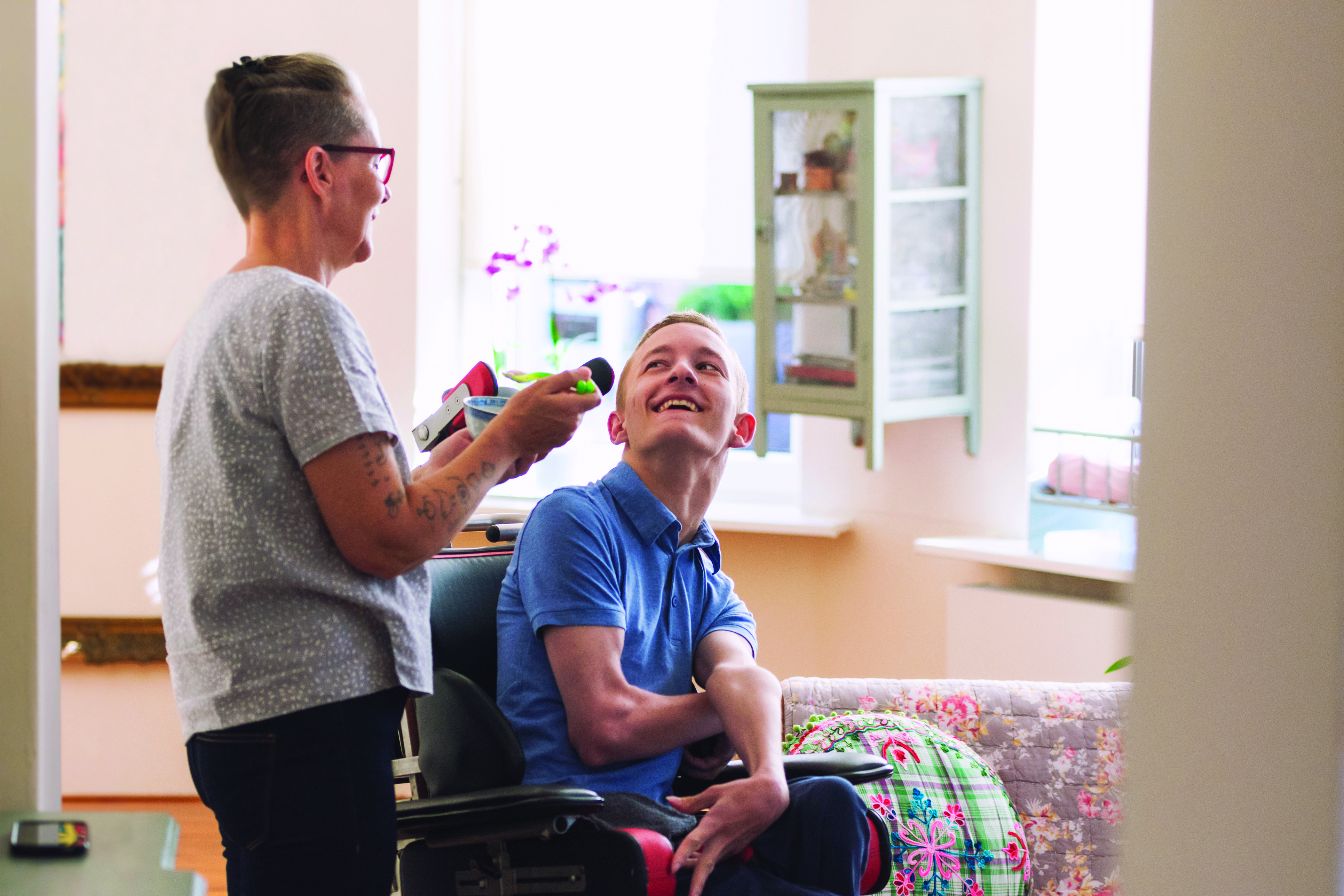Resources
Disability
Close to one-in-five Queenslanders live with a disability. An estimated 236,200 Queenslanders have a profound or severe disability. Such people require assistance in everyday activities, such as self-care, mobility, and communication. Providing people with a disability with the support they need to participate in all domains of life is critical.
The National Disability Insurance Scheme (NDIS) began in Queensland from 1 July 2016 and is now fully implemented across the state. The NDIS has transformed the way people with disabilities access disability care and supports, along with the way disability supports are funded and delivered.

National Disability Insurance Scheme
For people with a disability, families, and carers, you can learn more about the NDIS by:
Checking the NDIS online
Contacting your local NDIS Partner in the Community delivering Local Area Coordination (LAC) services through the NDIS website
Contacting the QDN for help if you are experiencing additional challenges when engaging with the NDIS.
Help navigate the NDIS access process – Getting on the NDIS Grid and peer-to-peer advocacy
Here are some more great online resources:
- Community Resource Unit online resource – Bringing the Good Life to Life
- Deaf Services Queensland – NDIS information and interpreting
- Endeavour Foundation NDIS resources
- The Multilingual Disability Hub provides accessible information on disability and the NDIS
NDIS factsheets in 39 languages
AMPARO Advocacy is a non-profit community organisation which provides independent individual and systemic advocacy on behalf of vulnerable people from a non-English speaking background with disability.
AMPARO Advocacy has been working to increase the participation of people with disability and their families from culturally and linguistically diverse communities, in activities that aim to prepare them for the National Disability Insurance Scheme.
Access the full list of fact sheets from Amparo Advocacy
Person centred policy and practice
A person-centred approach focuses on making sure a person with a disability is at the centre of all decisions and actions that relate to their life and their support.
What is person centred practice?
A person-centred practice assumes that an individual can determine the direction of their life based on their own strengths, abilities, networks, and preferences to meet their goals at any stage in their life. The person requesting or requiring support is the driver, rather than the organisation providing the support.
What is self-direction?
Self-direction, or self-directed funding, lets the person with a disability and their family decide how to use their funding to best meet their needs. It provides choice and control over the supports and services used.
The NDIS has been designed based on self-direction. In Queensland, you can self-direct your support through Your Life Your Choice.
Queensland disability services
In Queensland, the Department of Communities, Disability Services and Seniors initiated a self-directed funding model in 2012.
By introducing a person-centred framework, the government acknowledged that the person with the disability and their family were often best placed to know what is needed to meet their needs.
In some cases, Disability Services holds the person’s funding, and they make payments directly to the person’s bank account. This is referred to as direct payments.
Alternatively, funding may be held by a host provider who assists the person and their family to manage their money. In both cases, the person gets to direct where, when, how and on what their funding is spent.
Implementing person centred approaches
Person centred approaches require that resources be used flexibly to achieve what is important to the individual.
For a person with a disability, good planning is essential so that everyone in their life is aligned with what they want to achieve and how they want to achieve it. It is also a requirement to ensure that the person is able to use their funding to build the life they want to live.
For services, organisations and the people who work there, it is important to listen and work with clients and their families to help them achieve what is important to them – rather than trying to fit them into predefined service offerings.
Real person-centred approaches come from:
- being willing to listen and act. It calls for all parts of an organisation to listen to what is important to the person now and into the future
- giving up power over the person
- being willing to work with the person’s capacities and choices
- assisting the person in finding ways to overcome barriers.
- a willingness to work with the person’s family, network, and community to ensure that what is important to them can become a reality.
eTraining: NDIS Quality and Safety Compliance Program
Supported by the Queensland Government and developed for WorkAbility Queensland, this free eTraining course is for employees of new NDIS Service Providers and has been designed to improve provider capability and compliance with the NDIS Quality and Safeguards Framework. Over eight interative modules, this course will guide you through choice and control, Quality and Safeguards in the NDIS, frameworks, standards and more.
Visit the Community Door eTraining platform and enrol today (a free account is required).
eTraining: Self-managing your NDIS Plan
This free training is designed for people that are looking to self-manage their own plan or are currently self-managing and looking to increase their skills and knowledge. The training package aims at empowering and inspiring individuals to confidently manage all/some/part of a plan in a way of their choosing through 10 modules.
This module was supported by the Queensland Government and developed for WorkAbility Queensland. Visit the Community Door eTraining platform and enrol today (a free account is required).
